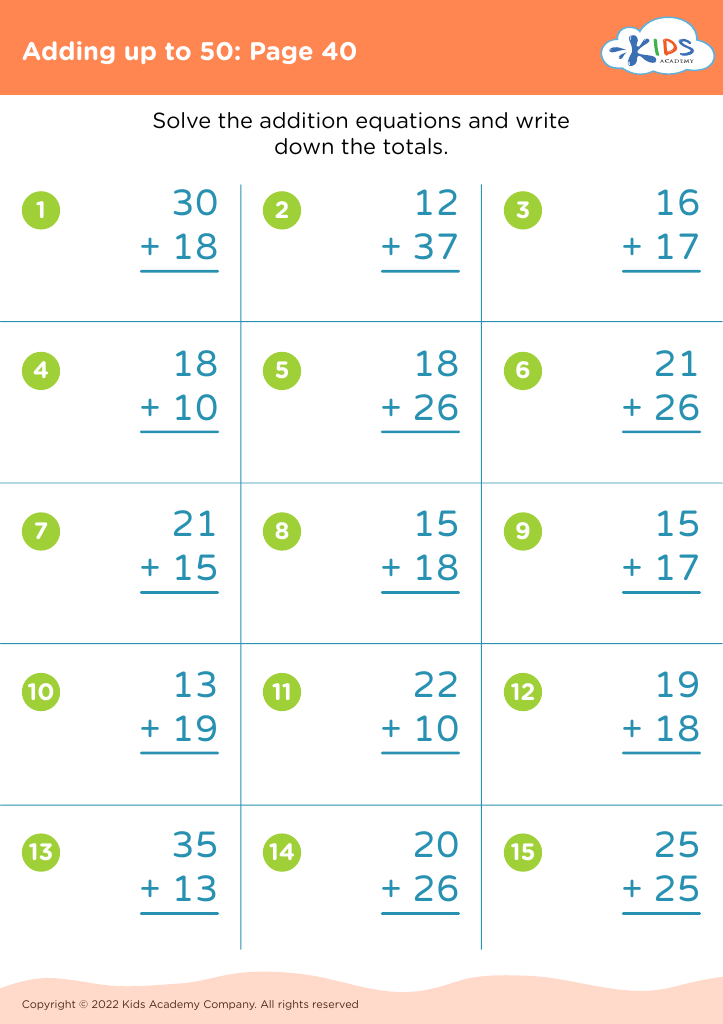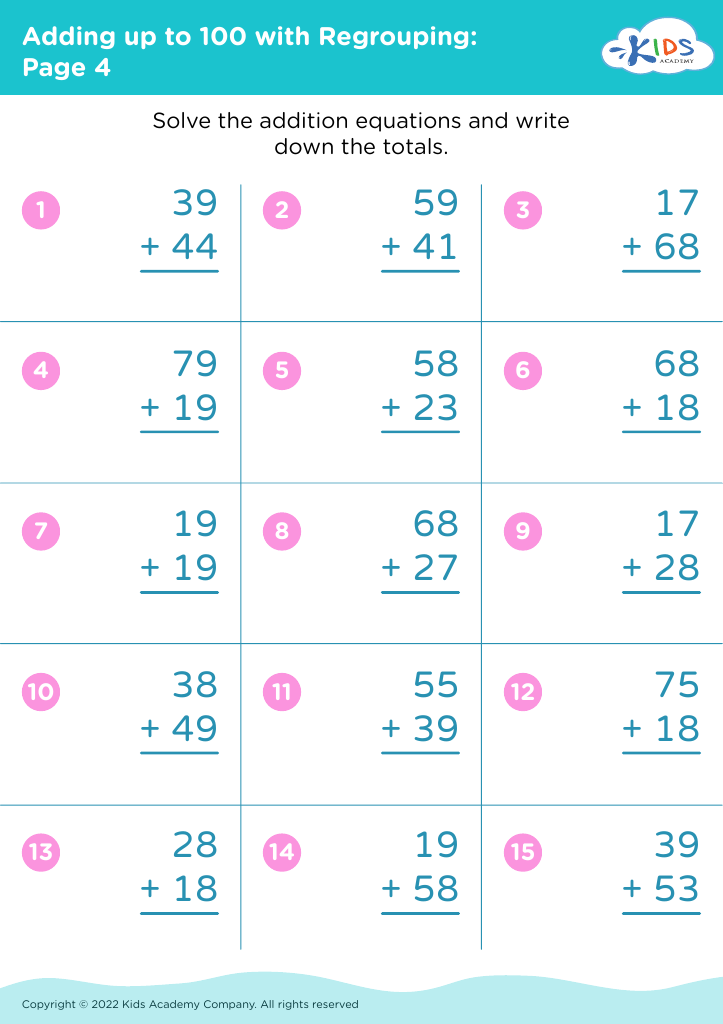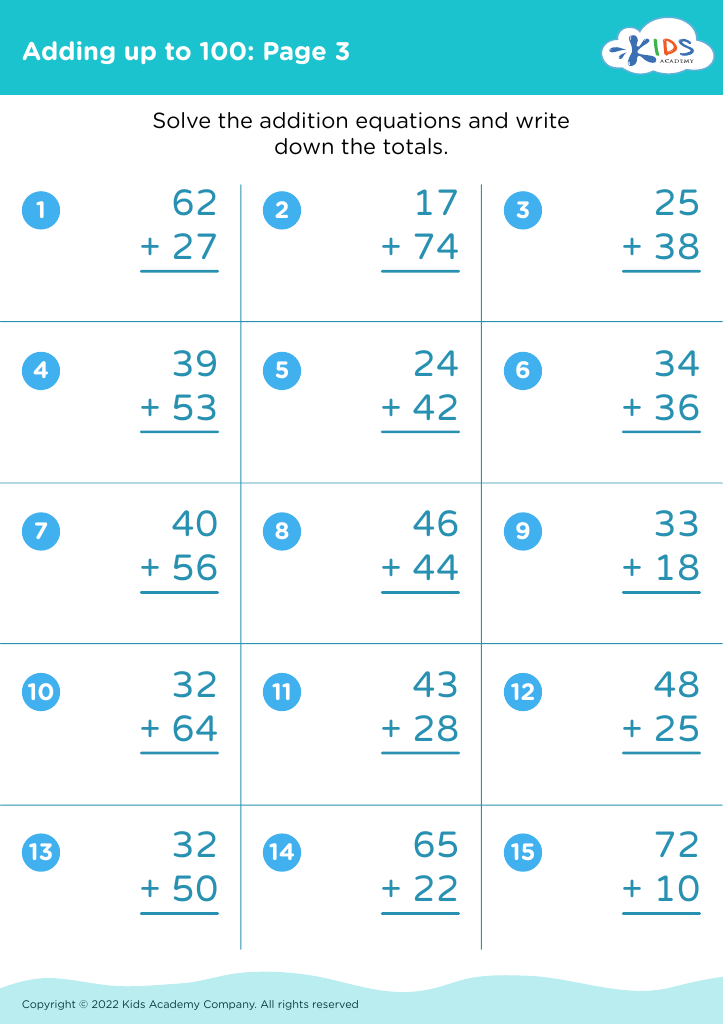Spelling practice Addition Worksheets for Ages 7-8
4 filtered results
-
From - To
Enhance your child's math and spelling skills with our Spelling Practice Addition Worksheets for ages 7-8. These worksheets seamlessly combine spelling exercises with addition problems, helping children reinforce essential math concepts while expanding their vocabulary. Designed by education experts, each worksheet provides engaging activities that boost confidence and promote critical thinking. Perfect for classroom or at-home practice, our worksheets support children's learning in a fun and interactive way. Ideal for 2nd graders, these resources ensure kids remain motivated and enthusiastic about both math and spelling. Explore our collection today and watch your child's skills flourish!
Spelling practice is a fundamental aspect of literacy development, and for children aged 7-8, it is crucial for several reasons. At this age, children are transitioning from simple word recognition to more complex reading and writing skills. Accurate spelling enhances their ability to read fluently and understand the meaning of the text they encounter. When children know how words are spelled, they are more likely to read with ease, which builds confidence and promotes a love for reading.
For both parents and teachers, consistent spelling practice supports children in mastering phonetic skills, recognizing patterns in words, and understanding the rules governing word construction. This knowledge underpins the ability to write clearly and effectively, making communication more precise and reducing misunderstandings.
Furthermore, spelling practice enhances cognitive abilities such as memory and concentration while strengthening brain regions involved in language and literacy. It also plays a critical role in vocabulary expansion, exposing children to new words and meanings.
Incorporating spelling practice within the age-appropriate learning schedule prepares children for future academic challenges and lays a strong literacy foundation. Teachers can track progress, and parents can involve themselves in meaningful educational activities, fostering a home-school connection. Therefore, prioritizing spelling at this formative stage should be a key component of any educational strategy for young learners.
























